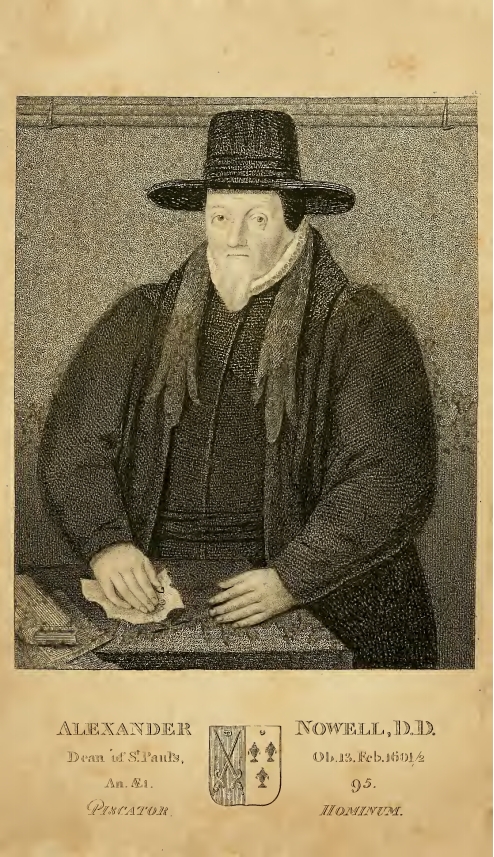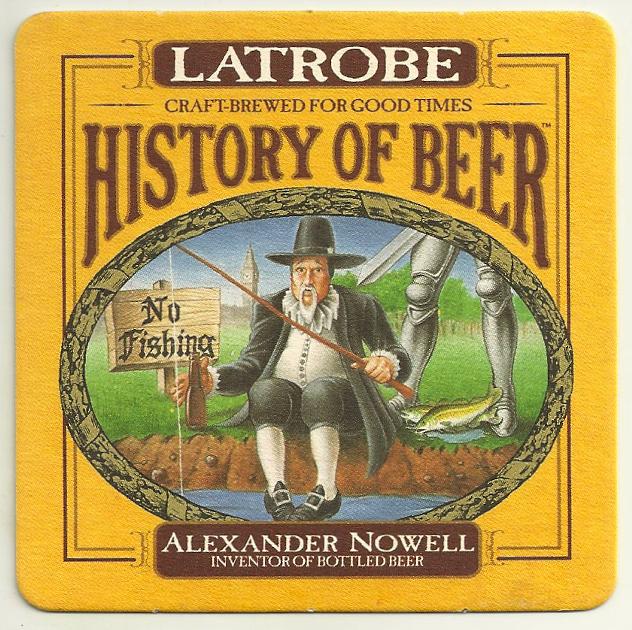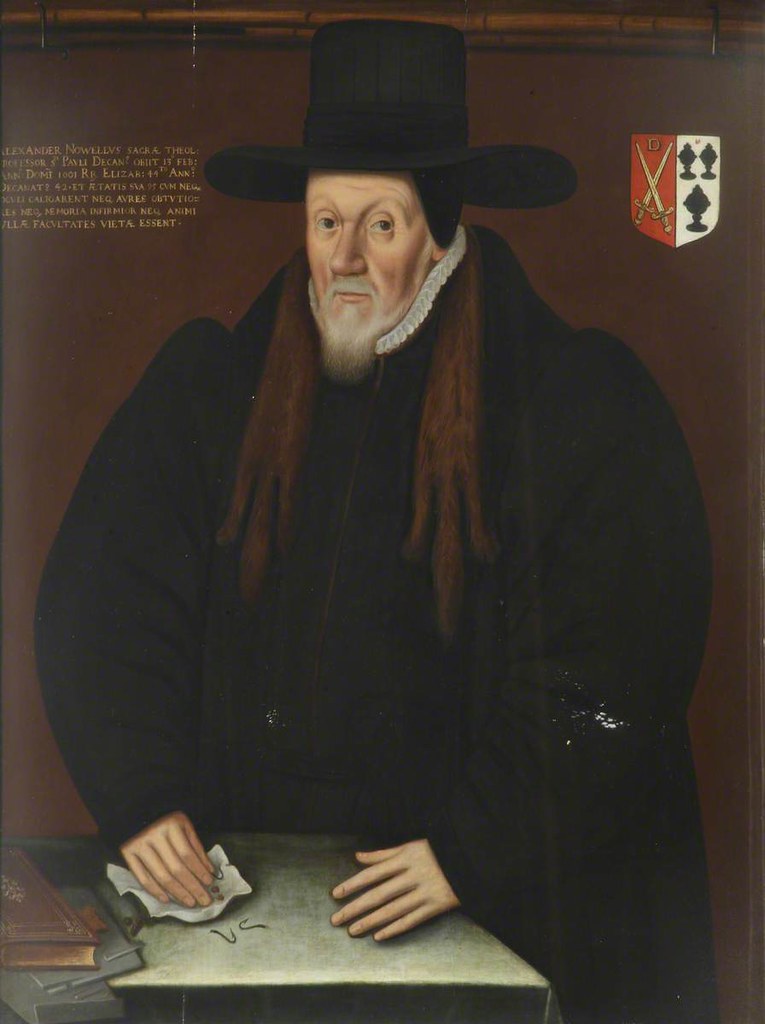![]()
July 13, 1568 is often given as the date that the Dean of St Paul, Alexander Nowell invented the beer bottle. It’s almost certain that’s not correct. If you were writing a work of history you’d ignore what you couldn’t confirm, but if you’re only commemorating the event it’s as good a day as any to do so. The event in question was another fishing trip. Apparently, the theologian was quite the avid fisherman and “a keen angler.” Nowell’s contemporary, Izaak Walton — the author of The Compleat Angler — remarked of him that “this good man was observed to spend a tenth part of his time in angling; and also (for I have conversed with those which have conversed with him) to bestow a tenth part of his revenue, and usually all his fish, amongst the poor that inhabited near to those rivers in which it was caught; saying often, ‘that charity gave life to religion.'”

As for inventing the beer bottle, credit was apparently not given until after his death, by English churchman and historian Thomas Fuller, who wrote. “Without offence it may be remembered, that leaving a bottle of ale, when fishing, in the grass, he found it some days after, no bottle, but a gun, such the sound at the opening thereof: and this is believed (casualty is mother of more inventions than industry) the original of bottled ale in England.”
The best account, as usual, undoubtedly comes from Martyn Cornell on his Zythophile blog, in his article, A Short History of Bottled Beer:
While Nowell was parish priest at Much Hadham in Hertfordshire, around 20 miles north of London, in the early years of Elizabeth I, it is said that he went on a fishing expedition to the nearby River Ash, taking with him for refreshment a bottle filled with home brewed ale. When Nowell went home he left the full bottle behind in the river-bank grass. According to Thomas Fuller’s History of the Worthies of Britain, published a hundred years later, when Nowell returned to the river-bank a few days later and came across the still-full bottle, “he found no bottle, but a gun, such was the sound at the opening thereof; and this is believed (causality is mother of more inventions than industry) the original of bottled ale in England.”
The ale, of course, had undergone a secondary fermentation in the bottle, building up carbon dioxide pressure so that it gave a loud pop when Nowell pulled the cork out. Such high-condition ale must have been a novelty to Elizabethan drinkers, who knew only the much flatter cask ales and beers. However, Fuller’s story is fun, but it seems unlikely Nowell really was the person who invented bottled beer: it seems more than probable that brewers were experimenting generally with storing beer in glass bottles in the latter half of the 16th century, though there is no apparent evidence of commercial bottling until the second half of the 17th century, only bottling by domestic brewers.
Part of the problem was that the hand-blown glass bottles of the time could not take the strain of the CO2 pressure. Gervaise Markham, writing in 1615, advised housewife brewers that when bottling ale “you should put it into round bottles with narrow mouths, and then, stopping them close with corks, set them in a cold cellar up to the waist in sand, and be sure that the corks be fast tied with strong pack thread, for fear of rising out and taking vent, which is the utter spoil of the ale.”
(There is, incidentally, a garbled version of the “bottle as gun” tale which seems to have materialised in the late 19th century, and which conflates the bottled ale story with another about Nowell fleeing England in a hurry in the reign of Queen Mary, after he received a warning that his enemy Bishop Bonner, known as “Bloody Bonner”, was out to arrest him for heresy. For some reason, in this version of the story Nowell is called “Newell”.)

And this account is from Just Another Booze Blog:
It was a pleasant July day in 1568. Alexander Nowell, the Dean of St Paul’s Cathedral, in London, decided he wanted to do some fishing down by the river. He packed up all his fishing gear and tackle, the wife packed him a ham and cheese sandwich, and he grabbed his night crawlers and the new fishing lure he bought off of the Outdoor Channel. He was all set to go when he realized, what would go great with fishing? A beer! Because fishing without beer is like driving without beer. It’s just no fun. So he stopped by the corner pub on his way to the river and had them fill a glass bottle up with beer for him. He made sure they sealed it up good and tight with a cork so his horse wouldn’t get pulled over for an open container.
When done fishing, he accidentally left the still half full bottle on the river bank. Several days later (July 13th) he returned to do some more fishing, because he needed an excuse to get away from the wife for a while. He saw his old beer on the ground and thought “man, I could really go for some for that right now.” When he went to drink it, the cork opened with a loud bang (the beer had fermented further over the past few days). He found it to be extra fizzy and quite delicious.

A 1595 portrait of Nowell at Brasenose College, at the University of Oxford.

LMAO @ the last tale in that string! Great stuff – thanx for posting!